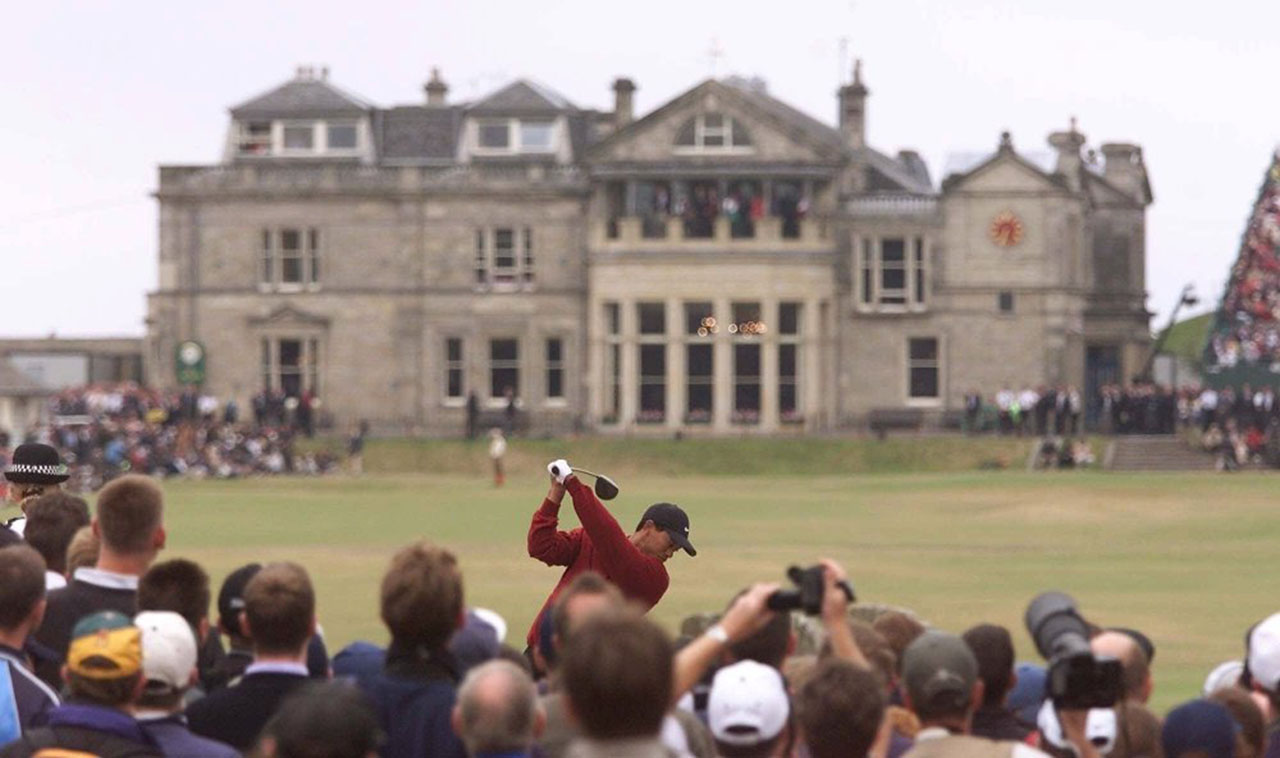“If I feel like I can still win, I’m going to play. But if I feel like I can’t, then you won’t see me out here.” – Tiger Woods, two days before the Masters.
And if it’s both? Then what?
It’s obvious from some of his rounds at the Masters and the PGA Championship that Tiger Woods can still play well enough to be a factor. It’s also clear that, with his surgically reconstructed right leg and fused-together back, it’s going to be a mighty challenge for his body to hold up over the 72 holes required to win a major championship.
So does he tee it up at next month’s U.S. Open because, for the first few rounds at least, he can? Or does he bow out as he did the final round of the PGA, acknowledging both his physical pain and the discomfort of being reduced to a motivational mascot?
Given the ferocious competitiveness that was as much a factor in his 15 major wins as his physical skills, it’s a good bet he’ll be at Brookline, where the U.S. Open will be played June 16-19.
But he shouldn’t be. Not as a concession to his ravaged body, but as a means of getting the most out of it at the major left this year that really matters to him.
 Tiger Woods lifts the Claret Jug after winning the 2005 British Open Golf Championship at the Royal and Ancient Golf Club in St. Andrews, Scotland on July 17, 2005 (Photo by Pete Fontaine/WireImage)
Tiger Woods lifts the Claret Jug after winning the 2005 British Open Golf Championship at the Royal and Ancient Golf Club in St. Andrews, Scotland on July 17, 2005 (Photo by Pete Fontaine/WireImage)
This year’s British Open is being played at St. Andrews, and Woods has said often that the Old Course is his “favorite course in the world.” He’s won two of his three British Open titles there and his first, in 2000, completed the career Grand Slam.
He also won at St. Andrews in 2005, at what was Jack Nicklaus’ last appearance at the British Open.
“St. Andrews is, obviously, near and dear to my heart because it’s the home of golf, and I’ve been able to win a couple of Opens there,” Woods said at the Masters.
Woods and his team have worked nothing short of a medical miracle to get him back playing at major championships a mere 15 months after a rollover car accident so severely damaged his right leg that doctors considered amputating it. And that came after multiple back surgeries.
Playing golf is always going to be painful, and Woods has made peace with that. The game – the majors in particular – means enough to him that he’s willing to withstand it. But the more he can strengthen his leg, the better his chances are of both making the weekend and not fading into irrelevance over the last two days.
Woods won’t be able to do that if he tries to play both the U.S. Open and British Open in less than four weeks. That would make three major championships in an eight-week span. It’s asking too much of a body that has already endured more than anyone’s should, and Woods won’t be happy with the results.
It takes considerable work by Woods and his medical team just to recover from the exertion of playing tournament golf, and he clearly needed more than the six weeks between the Masters and the PGA Championship. Watching Woods make his way around steamy Southern Hills on Thursday was the visual equivalent of nails on a chalkboard, his walk becoming more and more labored as the day wore on.
 Tiger Woods reacts after playing a shot from the second tee during the second round of the 2022 PGA Championship at Southern Hills Country Club. (Photo: Michael Madrid-USA TODAY Sports)
Tiger Woods reacts after playing a shot from the second tee during the second round of the 2022 PGA Championship at Southern Hills Country Club. (Photo: Michael Madrid-USA TODAY Sports)
“I just can’t load it. Loading hurts, pressing off it hurts and walking hurts and twisting hurts,” he said after shooting a 4-over 74 in the first round. “It’s just golf. I don’t play that – if I don’t do that, then I’m all right.”
He rallied Friday, playing his last seven holes at 2 under to make the cut. But it was obvious he was in considerable pain, and he withdrew shortly after finishing the third round with a 9-over 79, his worst-ever score at the PGA.
“I’m sore,” he said before withdrawing. “I know that for a fact.”
Now he faces even tighter turnarounds for the U.S. Open and then the British Open. The physical toll of the PGA and the U.S. Open – tournaments in the heat and hills, with Brookline also having the diabolical rough the USGA loves so much – could escalate to the point that it puts St. Andrews out of reach for Woods.
And how devastating that would be.
The British Open generally returns to St. Andrews every five or six years; it was a seven-year wait this time because of the 150th anniversary of the tournament. But as Woods knows better than anyone now, nothing is guaranteed. Life can change in an instant, and there’s no telling what shape he’ll be in when the British Open returns to the Old Course next.
In golf, just as in life, sometimes the smartest thing is not to try and do too much. It’s worth skipping the U.S. Open if it means Woods can play the British Open.
Follow USA TODAY Sports columnist Nancy Armour on Twitter @nrarmour.

